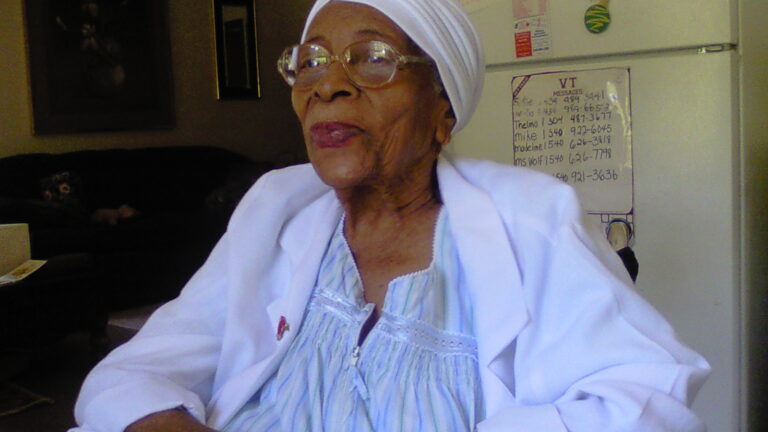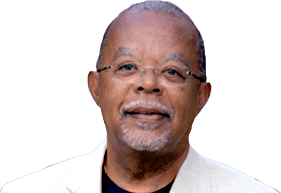Tamika Lawson

Growing up in Detroit, Michigan, I learned about the accomplishments and struggles of Blacks from many sources. I learned from trips to the museum, history classes, television specials, reading books, and church, but most of all from three sources: Living as a Black female and overcoming racial bias; from my mother; and from my “Grandmaw” (pictured). This is my mother’s mother, the last picture of her before her passing at 102 years of age. My mother and father are both native Virginians that migrated to the north in the 60’s. Both of their parents were descendants of Black slaves, Native Americans, and Whites. Both of my grandfathers worked to help build railroads and both of my grandmothers cleaned for white folks. These were common jobs for Blacks during their time. They endured their share of racial prejudice in rural Virginia and because of this they were limited to certain jobs. My Grandmaw was a smart, proud, and dignified woman who had learned to read as a child, taught by a white woman who admired her father after his wife died. This enabled Grandmaw to teach my Granddaddy to read. She was also a substitute teacher at the schoolhouse for the black children in town during her younger days. About two years ago, I found the census that shows my great grandparents’ (my mother’s side) information as well as my Grandmaw and her siblings. I found the information to be intriguing and a feeling came over me as I read it. Grandmaw was instrumental in passing down the stories of our family’s history to all ten of her children. My mother also did this for me and my three older sisters, as well as requiring us to learn for ourselves the history of our people.
Learning my history did not make me angry but it empowered me and gave me motivation to work hard and it made me more proud to be what and who I am. Over the years, my knowledge of my own family has increased by continuing to ask my elder family to tell me more. My self education in the history of my people has increased by continuing to want to learn all that I can from educational and informative sources, including PBS specials on history of all kinds because it all adds up to where we are today as people and a nation. My husband is white and he also enjoys the lessons he gets when my mother and my aunts re-tell the stories of my family as well as when we watch Black history programs. He is comfortable with asking me questions and I am all too happy to share and further educate him. In some ways, I think this has made him really appreciate me and Black heritage more than before.
I think the most effective way to pass down our rich history to younger generations is to educate ourselves as adults as much as we can about our own family history and our heritage and to pass that on to our children. I will soon embark on a mission to complete a family tree to be passed on to my son and my nieces and nephews. Also, we need to be proud of where we originate from and own our ancestors struggles and accomplishments and continue to talk to our children about how they came about, have them talk to grandparents, take them to the museums, share what we know with others who may not realize that we have every reason to hold our heads up. Black history made us strong, continuing to tell the story will keep us strong and give our children and future generations a reason to create tangible goals and be inspiring.




